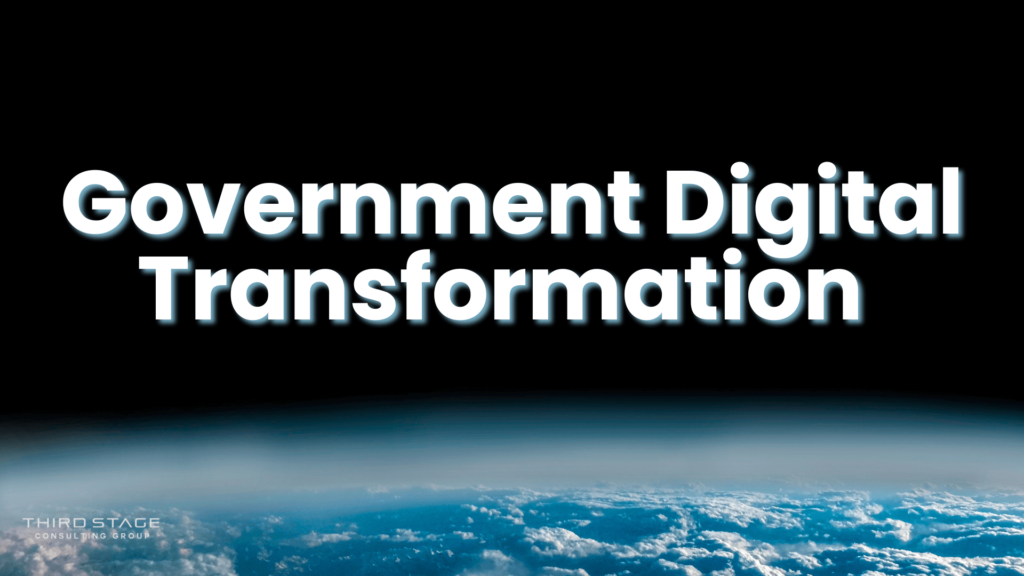The Complexities of Government Digital Transformation: 6 Challenges and Risks

Government digital transformation comes with a massive challenge—moving from highly customized, disconnected systems to a single, standardized platform. Unlike businesses that have the flexibility to adopt new technology quickly, government agencies must work within strict regulations, security requirements, and complex governance structures. This makes large-scale IT transformations not just a technical hurdle but an organizational […]
SAP S/4HANA vs. Workday: Which ERP System is Right for Your Organization?

When evaluating Enterprise Resource Planning (ERP) systems, SAP S/4HANA and Workday often emerge as top contenders. Both systems offer robust capabilities but are designed with distinct approaches and target markets. Understanding their unique characteristics, strengths, and limitations is essential for selecting the right solution for your organization. SAP S/4HANA: A Legacy of Comprehensive ERP Solutions […]
Lessons from the US Navy SAP ERP Failure

The US Navy, one of the largest organizations in the world, embarked on an ambitious ERP implementation project with the lofty goal of consolidating all its disparate legacy systems onto a single SAP platform. Initially, the approach involved conducting pilots across four different areas of the organization to test SAP implementations. However, this decentralized approach […]
5 Critical Steps to Navigating the Path to Updating Outdated Technology

Hello, I’m Eric Kimberling, CEO of Third Stage Consulting, and I specialize in guiding organizations through their digital transformation journeys. A common challenge many organizations face is dealing with outdated technologies. This blog aims to provide a structured approach to help you define a roadmap for your organization’s technology initiatives, ensuring you can leverage the best of what technology has to offer to enhance your business.
The Risks of Untested and New Software: Navigating the Digital Minefield

In the fast-paced world of technology, the allure of the newest software can be irresistible. Whether it’s a cutting-edge operating system, a revolutionary app, or a promising software update, the temptation to leap at the latest tech offering is understandable. However, this enthusiasm often overlooks a critical aspect of digital adoption: the risks associated with untested and new software. This blog will explore these risks, why they matter, and how to mitigate them.
Top 5 Essential Skills for Navigating Digital Transformation in 2024

The digital landscape is evolving rapidly, reshaping industries and altering how businesses operate. Various technological advancements, from artificial intelligence to cloud computing, drive this transformation. As organizations navigate this digital shift, specific skills have become particularly valuable.
ERP for E-commerce: A Complete Guide

This article aims to delve into the world of ERP systems in the context of e-commerce. It will cover the essential features of ERP systems that are particularly beneficial for online businesses, explore the tangible benefits these systems offer, and provide guidance on choosing the right ERP solution tailored to specific business needs. Additionally, the guide will discuss strategies for successful ERP implementation, showcase real-world case studies of e-commerce businesses that have transformed through ERP integration, and offer a glimpse into future trends and technological advancements in the field of ERP for e-commerce.
How ERP Systems Can Improve Customer Service

In essence, the adoption of an ERP system is not just an upgrade of technology — it’s a strategic investment in improving customer service. The purpose of this blog is to delve into how an ERP system can revolutionize customer service, making it more efficient, responsive, and personalized, ultimately driving business growth and customer loyalty.
How ERP Systems Support Business Growth

ERP systems are software platforms that combine a plethora of business processes and functions into a single, unified system. These systems streamline various operations, from Accounting and Human Resources to Supply Chain Management and Customer Relationship Management, thereby creating a harmonized ecosystem for business data and processes.
The Role of ERP in Sustainable Business Practices

In today’s rapidly evolving business landscape, the integration of technology and sustainable practices is becoming increasingly crucial. At the forefront of this integration are Enterprise Resource Planning (ERP) systems, sophisticated software platforms designed to manage and streamline various business processes.
Title: Understanding the Lifecycle of ERP Systems

Enterprise Resource Planning (ERP) systems have become integral to the modern business landscape, offering an array of functionalities that streamline various business processes under one comprehensive framework. These systems integrate critical business functions such as Finance, HR, Manufacturing, Supply Chain Management, and more, allowing for a more coordinated and efficient approach to business management. The advent of ERP systems marked a significant shift in how companies organize and analyze data, making it easier to access real-time information and make informed decisions.
The Role of Enterprise Resource Planning (ERP) in Financial Management

We will also guide you through the crucial steps of selecting and implementing the right Enterprise Resource Planning system tailored to your financial management needs. Additionally, we will peek into the future, examining emerging trends that are set to further revolutionize financial management. By the end of this blog, you will have a comprehensive understanding of the indispensable role of ERP systems in modern financial management, equipping you with the knowledge to harness their full potential for your business’s success.
